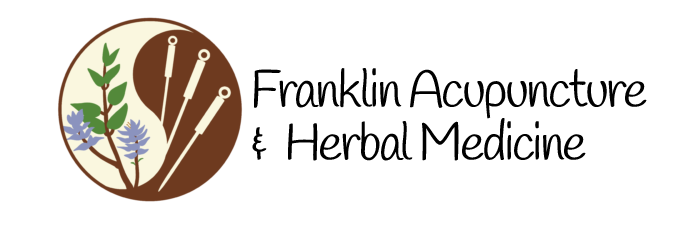Cancer, it’s a diagnosis that no one wants to hear. It can leave you feeling frightened, uncertain, and powerless. But if you or a loved one is facing cancer, it’s important to have hope. In many cases, cancer can be cured, especially when it’s detected early. There are more treatments available now than ever before to cure cancer or slow it from spreading, relieve its symptoms, and help you live a healthier life.
It’s also important to know that you have options in addition to standard medical therapies. Acupuncture and Traditional Chinese Medicine (TCM) have been used for thousands of years to treat a wide variety of conditions. It can safely be used to naturally support your body and mind as you undergo conventional cancer treatments.
Understanding treatments and their side effects
Cancer is an overall term for a group of diseases that occur when cells begin to reproduce abnormally, eventually damaging or killing healthy tissue. Most cancers are named according to where they begin in the body, and there are more than 100 different types. The most common are breast cancer, skin cancer, lung cancer, colon cancer, and prostate cancer.
Your treatment plan will be based on many factors, including the type and stage (how far it has spread) of the cancer and your overall health. While cancer treatments have proven to be effective, they do have serious side effects to take into account. The most common treatments include:
Surgery: Performed to remove the cancer if possible. Surgery may be used alone or along with radiation therapy, chemotherapy, or biological therapy.
Chemotherapy: The use of medications to destroy cancer cells. Chemotherapy generally lasts from 3 to 9 months, and can have side effects including fatigue, nausea, vomiting, hair loss, early menopause, and hot flashes.
Radiation therapy: The use of high doses of radiation to destroy cancer cells. Side effects generally include fatigue, hair loss, and skin darkening at the site of the treatment.
Biological therapy: This treatment works by boosting the body’s immune system to fight cancer cells. Side effects depend on the specific type of therapy, but they can include rashes or swelling, flu-like symptoms, fatigue, nausea, and loss of appetite.
Cancer treatment according to Traditional Chinese Medicine is based on Fu Zheng Gu Ben principles
Fu Zhen means strengthening what is correct. It is an immune enhancing herbal regimen using specific herbs. The objective is to support and stimulate deep energy systems within the body to make it stronger and more resistant to degeneration.
Gu Ben refers to strengthening and supporting the body to regenerate and repair.
Treatments may include:
- Removing toxins that may contribute to cancer
- Increasing the flow of blood and Qi
- Removing accumulations of tissue that are believed to be the tumor
- Restoring self-regulation and balance among the Jing, Qi and Shen
How acupuncture and TCM can help
Acupuncture and TCM have been used for thousands of years to maintain health and relieve symptoms. Practitioners work to treat imbalances in the body’s Qi, or vital energy, by inserting fine, sterile needles at specific acupoints.
Since acupuncture has few side effects, it can be safely used as a complement to conventional cancer treatments. In fact, in many cancer cases it’s recommended as a way to soothe and reduce side effects. According to the National Institutes of Health1, acupuncture has been found to be effective in relieving:
- Nausea
- Vomiting
- Fatigue
- Post-surgical pain
Acupuncture and TCM can also help relieve stress, depression, and anxiety, which can greatly improve your quality of life during this challenging time.
In addition to acupuncture, your practitioner may also provide massage, acupressure, nutritional counseling, or an exercise program designed to help you stay as healthy as possible. He or she may also recommend herbal medicines or vitamin supplements.
Remember to always communicate with your health care providers about these and any other medications you take in order to avoid any drug interactions.
Treating the person, not just the disease Acupuncture practitioners take a holistic, or whole-body, approach to cancer care. This means that not only will your symptoms be considered, but also your lifestyle, emotional state, and overall health. Your whole being will be taken into account, not just the cancer. When you work with your practitioner to improve your health and relieve your side effects, you are not only helping yourself get the most from conventional treatments, you’re taking back the control of your own life.
The American College of Chest Physicians recommends that acupuncture be used for patients who experience fatigue, dyspnea, chemo-therapy induced neuropathy or to soothe symptoms of pain or nausea and vomiting. Especially in patients who have cancer of the lungs.
References:
1. NIH Consensus Conference. Acupuncture. JAMA 280 (17): 1518-24, 1998.
Comprehensive cancer care: integrating alternative, complementary, and conventional therapies. Gordon JS, Curtin S. NY: Persus Publishing, 2000.
Acupuncture. American Cancer Society. May 25, 2007. Link
Understanding CancerTreatment. WebMD. Accessed February 11, 2008. Link
New Lung Cancer Guidelines Oppose General CT Screening – Lung Cancer Recommendations – Avoid Select Vitamins, Try Acupuncture. Chest, September 2007.

